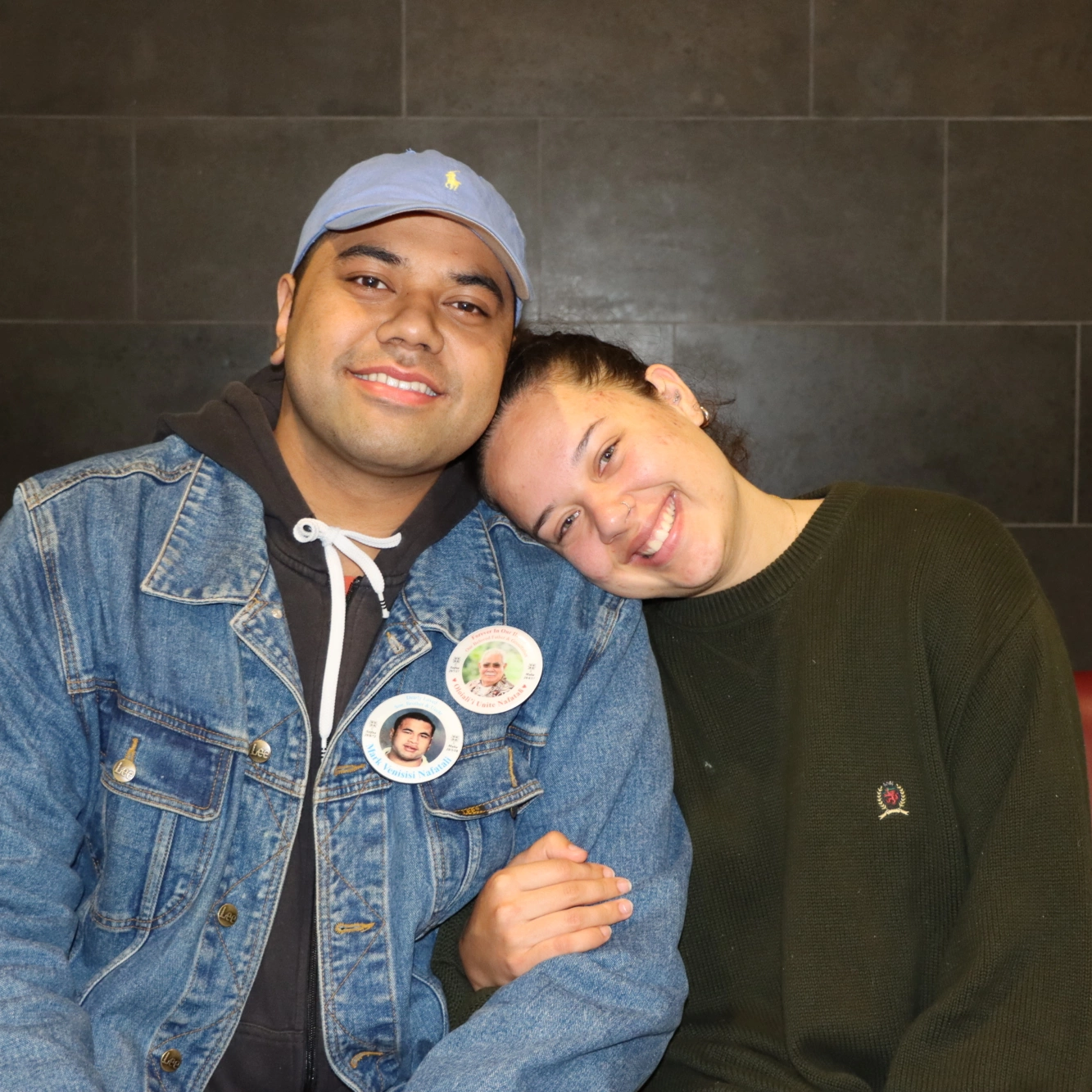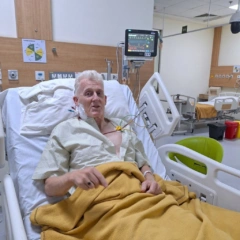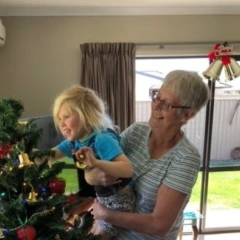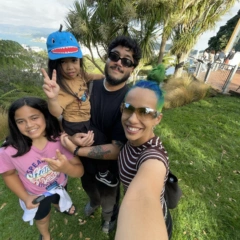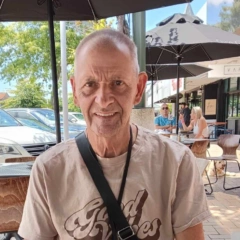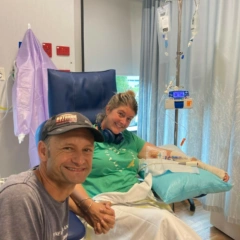Overcoming all Obstacles
In early 2020, Mile Nafatali had soreness in his shoulder. The 22 year-old, who worked as an Administrator at a medical centre, just thought it was from playing sport.
When he began coughing up blood, he decided to get it checked out. After a visit to the GP, they found a lump in his chest. A biopsy a few weeks later confirmed it was Primary Mediastinal large B-cell lymphoma Stage 4B.
The diagnosis came as a huge shock to Mile and his family: “I was quite healthy, active and feeling well. Because the cancer was mostly in my bones, I wasn’t in pain... I couldn’t believe it.”
Over the next six months, he had six rounds of chemotherapy. A scan to check its progress found the chemo wasn’t working, so he was given a higher dose of three more rounds.
After nearly a year of chemo, Mile needed a Stem Cell Transplant (SCT). By the time he travelled from Dunedin to Christchurch with his mum and sister, he could barely walk. A PET scan showed the lymphoma had progressed rapidly. His SCT was cancelled.
Mile remembers the moment clearly:
“My doctors said I had no more options left; I only had a few months to live. I was in total shock. I was put in a wheelchair, because they said the cancer would break my bones. I was sent home to be with my family and basically prepare to die.”
Despite the devastating news, Mile’s family were not giving up. After meeting to discuss what they could do, they immediately reached out to the top clinics around the world to see what their options were.
Eventually they got in contact with the Peter McCallum Cancer Research Centre in Melbourne. Doctors there offered a potentially life-saving treatment called CAR T-cell therapy, which involves taking blood and modifying the “T-cell” from the white blood cells before reinserting it into the blood system.
“The only catch was the cost,” Mile laughs. “I thought it wouldn’t be possible. But incredibly, my doctor helped push through special funding to cover the costs. I was so thankful.”
His excitement quickly shifted to worry. Just as he was preparing to travel to Melbourne, New Zealand went into lockdown.
“That was on Friday, and by Tuesday, I needed to be in Melbourne to start treatment. Since flights weren’t available, the only way I could get there was a private Medivac helicopter, costing $80,000.”
He reached out to LBC who sprang into action straight away.
“It was incredible - within a few hours, they reached out to Seven Sharp, who were very supportive and geared up to run a story to raise the funds. But then David Downs, a lymphoma survivor himself, stepped up. He found some private donors to cover the cost…I couldn’t believe it. I was headed to Melbourne with my mum.”
In March 2020, Mile started two long months of treatment, and then waited for 30 days to see if it worked. His partner, and sister came out to support him and were there on the day he got the good news:
“The scan showed the cancer was completely gone. That was the greatest day ever.”
On May 1st, 2021, he headed back home to Dunedin and reunited with his family.
Today, Mile is in remission and is focussed on staying healthy:
“Physically, a year and a half of chemo and treatments took its toll. I’m currently in rehab with my physio, getting my body into shape and regaining lost muscle. At this stage my goals are to get back into work full time or possibly going back to study.”
He’s looking forward to spending more time with his friends, celebrating birthdays, and going on trips. He joined LBC’s Consumer Advisory Board to give feedback on support services and resources. A new David Downs documentary featuring Mile’s inspiring story is coming out soon.
Mile has a new outlook on life, and credits his resilience to the amazing people who helped him get through:
“I realised how precious life is, how we take things for granted. I’m so grateful for the huge amount of love and support from my family, my doctors, and the incredible LBC Support Services team who looked after and cared for me.”
